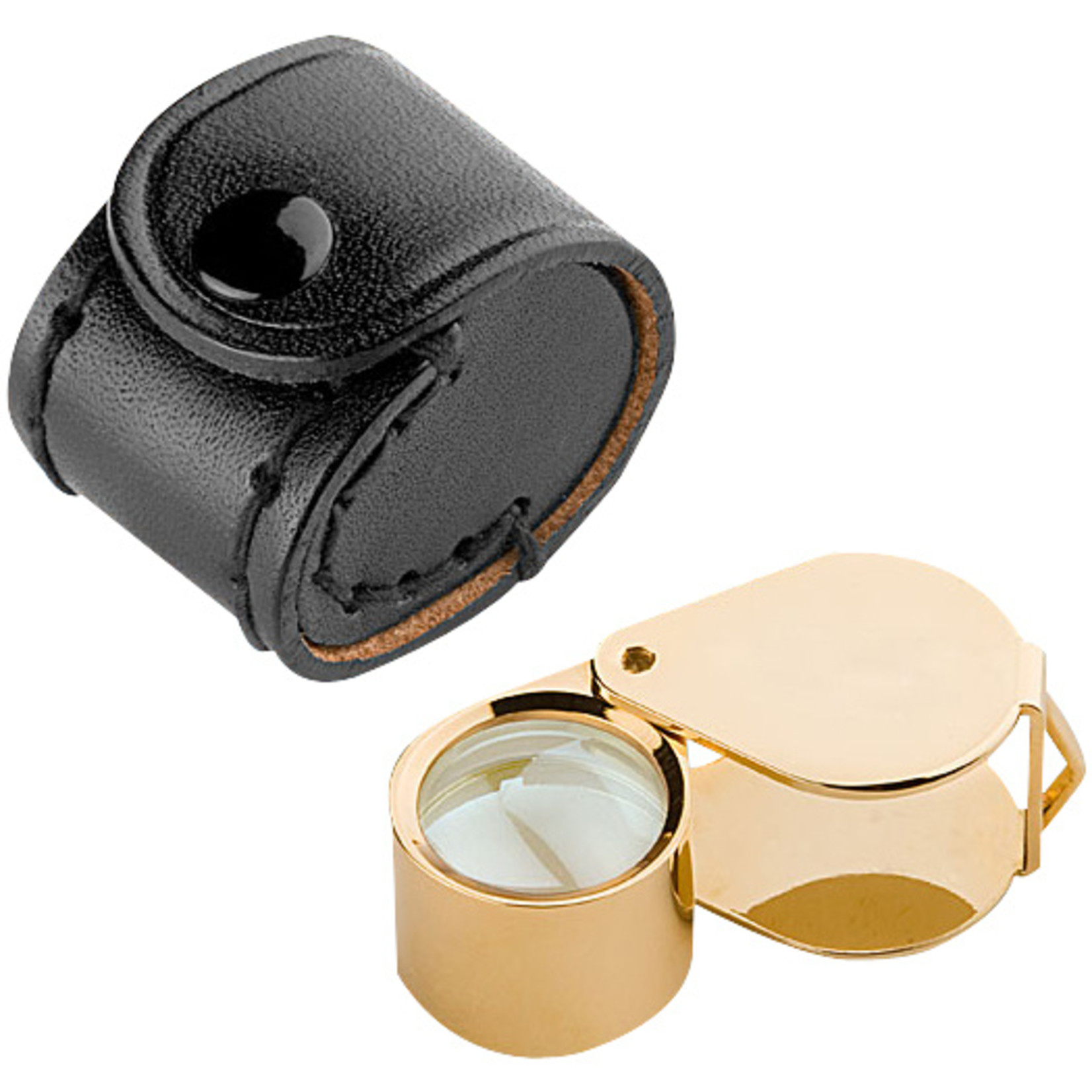This high gloss folding magnifier with full metal design is corrected for colour wave length aberration and is distortion-free. The lens diameter is 18 millimetres, the magnification factor is 10x. We supply this folding magnifier with a high quality leather case for protection. These aplanatic achromatic folding magnifiers have a multiple lens system guaranteeing a true-colour, distortion-free image. An apochromatic lens system combines the high edge definition of a aplanatic lens with the chromatic aberration correction of an achromatic lens, making it particularly suitable for reproducing the "true" colour of an object while guaranteeing a very good, distortion-free image.
Magnification factor 10 x
Lens dia. 18 mm
Focusable with working interval
Lenses Aplanatic, achromatic
Dimensions 55 x 22 x 20 mm (open)
Weight 37 grams
Case included
The aplanatic-achromatic single-lens magnifiers are multi-lens systems that guarantee a colour-error-free and distortion-free image. An apochromat (Greek for free of colour; English: apochromatic lens) is an optical system, e.g. a lens, in which the colour error is corrected as far as possible. In contrast to an achromatic lens, not only the primary but also the secondary spectrum is corrected. In its original meaning, an apochromatic lens system is calculated in such a way that the cut width matches for three wavelengths (colours) in the visible range, whereas with the simpler achromat the match is required for only two wavelengths. For the remaining wavelengths, too, there is then only a very small deviation in the cut-off width, and the longitudinal colour error is thus very well corrected.
An apochromatic lens system combines the edge-to-edge sharpness of an aplanatic lens with the colour error correction of an achromatic lens and is therefore particularly suitable if, in addition to the very good and distortion-free representation of an object, the colour of the object is also to be represented as 'real' as possible. In addition, there is a greater working distance and considerably improved lighting conditions.


